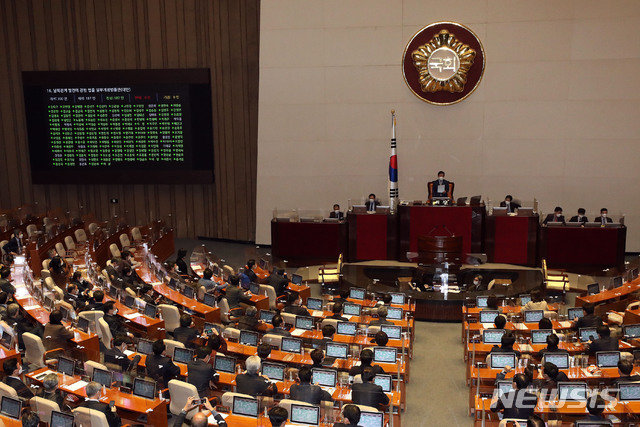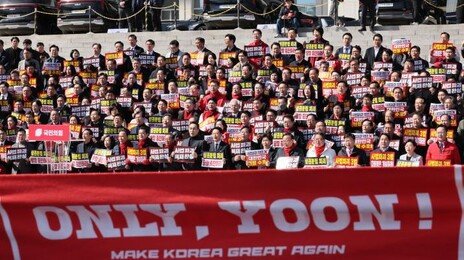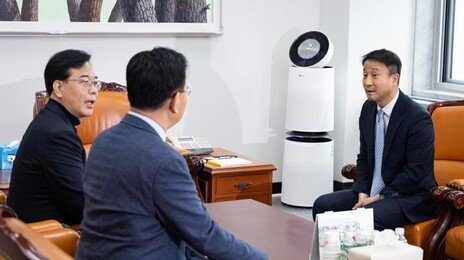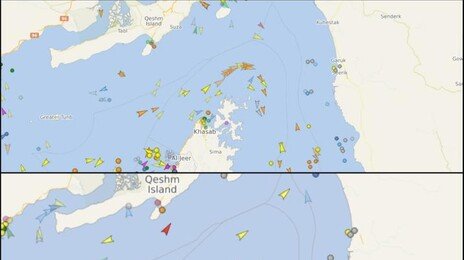[단독]킨타나 “대북전단금지법, 국제 인권표준에 도전”
- 동아일보
-
입력 2020년 12월 17일 03시 00분
공유하기
글자크기 설정
유엔 북한인권특별보고관 본보에 이메일 성명 보내
“모호한 용어 사용한 처벌 문제… 남북 주민 정보 주고받을 권리 있어”
“(최대 3년)징역형 부과는 민주사회 주춧돌인 표현의 자유 행위에 과도”

토마스 오헤아 킨타나 유엔 북한인권특별보고관이 더불어민주당 주도로 처리된 ‘대북전단 살포 금지법’(남북관계발전법 개정안)에 대해 “민주주의 사회의 주춧돌(cornerstone)인 표현의 자유에 기초한 행위에 대해 징역형을 부과하는 것은 과도해 보인다”며 “법안에 결점들(shortcomings)이 있다”고 비판했다.
킨타나 보고관은 16일 본보에 보낸 논평에서 “(이번 개정안은) 법률의 다른 방법으로 제재하는 대신 징역형으로 처벌해야 하는 정당한 이유를 제시하지 않았다”며 “이런 관점들에서 법안 시행 전 민주적인 기관(democratic institution)이 적절한 절차에 따라 검토할 것을 권고한다”고 밝혔다. 대북전단 살포에 대해 최대 징역형 3년을 처할 수 있다고 규정한 이 법안이 표현의 자유를 침해하는 만큼 우리 정부와 국회에 시행에 전 재검토를 요청한 것이다. 미국 의회와 국제 북한인권단체들에서 대북전단 금지법에 대해 잇따라 우려를 나타내는 가운데 유엔에서 북한 인권 문제를 전담하는 킨타나 보고관도 공식적으로 비판하고 나서면서 유엔 차원의 문제로 비화할 가능성도 배제할 수 없게 됐다.
킨타나 보고관은 “세계 인권선언 19조에 따라 남북한 주민은 국경에 관계없이 정보를 주고받을 권리가 있다”며 “이번 개정안은 인권선언에 의해 표현의 자유로 보호받는 탈북자들과 시민단체의 대북 관여 활동에 엄격한 규제를 가하고 있다”고 했다.

또 “접경지역의 인명 피해나 위협을 막기 위해 표현의 자유를 제한하려면 표현과 위협 사이에 직접적이고 즉각적인 연관이 있어야 한다”면서 “하지만 개정안은 시민단체의 모든 행위가 위협과 직접적 연관이 있다고 입증하지 않았다”고도 했다.
아래는 킨타나 보고관이 본보에 보낸 성명(Statement) 원문.
The amendment of the development of inter-Korean relations Act imposes strict limitations to many of the activities of defectors and civil society organizations that aim to engage with North Koreans in different areas of life. Most of these activities are protected by the freedom of expression recognized in article 19 of the Universal Declaration of Human Rights, in this case the right to impart and receive information and ideas regardless of frontiers that both people in the South and in the North are entitled to enjoy.
The amendment punishes the referred activities with imprisonment to up to 3 year, a provision which may compromise the principle of proportionality, since restrictive measures must be the least intrusive instrument, and this penalty of imprisonment seems to be excessive for actions which are based on the exercise of the freedom of expression, cornerstone for democratic society. The bill doesn‘t provide reasons to justify the use of this criminal punishment instead of sanctions from other branches of the law.
In addition, the amendment lacks preciseness required to identify actions banned when it uses general descriptions such as “propaganda materials, property profits”, or when it utilizes the term “etcetera”, which refers to a number of other unspecified actions (see article 4 subparagraphs 5 and 6). This indeterminate and blanket formula may challenge the compliance of the amendment with international human rights standards, according to which freedom of expression is not to be assessed by reference to a “margin of appreciation”.
Limitations to freedom of expression further require to justify a clear necessity, in particular by establishing a direct and immediate connection between the expression and the threat. In this regard, the necessity to prevent harm to the life or bodies of people or serious damages in border areas is a legitimate purpose. However, it has not been demonstrated a direct and immediate connection between all cross-border actions of civil society organizations and that kind of threat, other than the scattering of leaflets some years ago.
The bill also states that there is a necessity to restrict actions of defectors that impact on the other side of the border, because they threaten the Inter-Korean Agreement. In fact, compliance with the inter-Korean agreement, at least in some items, can be interpreted as the necessity to protect national security, one of the authorized grounds to impose restrictions on freedom of expression under international human rights law. Notwithstanding, the only actions of defectors organizations which are called for a stop in inter-Korean agreements are loud-speaker broadcasting and scattering of leaflets in the areas along the Military Demarcation Line (see section 2.1 of the Panmunjom Declaration for Peace, Prosperity and Unification of the Korean Peninsula). Under this reasoning, all other cross border civil society activities, including in third countries, protected by freedom of expression, shouldn’t be prohibited by the law or considered hostile acts without specific determination.
The amendment was provided by law, as required by international human rights standards, and subject to a democratic debate at the National Assembly of the Republic of Korea. Notwithstanding, in view of the shortcomings outlined above, the Special Rapporteur recommends that the amendment is duly review by the concerned democratic institutions before being enacted.
최지선 기자 aurinko@donga.com·한기재 기자 record@donga.com
트렌드뉴스
-
1
‘K패트리엇’ 천궁-Ⅱ, 이란 미사일 잡았다…UAE서 첫 실전 투입
-
2
미스 이란 출신 모델 “하메네이 사망, 많은 국민이 기뻐해”
-
3
“친미의 대가” 걸프 6개국 때리는 이란…중동 진출 빅테크도 타깃
-
4
만취女 성폭행한 세 남자…“합의하면 되나” 현장서 AI에 물었다
-
5
세계 최초 이란 ‘드론 항모’, 알고보니 한국산?
-
6
韓증시 아직 못믿나…중동전 터지자 외국인 5조원 ‘썰물’
-
7
이란, 이스라엘에 장거리 미사일 ‘가드르’, ‘에마드’ 발사
-
8
살아서 3년, 죽어서 570년…“단종-정순왕후 만나게” 청원 등장
-
9
‘文정부 치매’ 발언 이병태 “정제되지 않은 표현…용서 구한다”
-
10
“개학 늦춰주세요” 李대통령 틱톡 몰려간 학생들
-
1
‘尹 훈장’ 거부한 교장…3년만에 李대통령 훈장 받고 “감사”
-
2
최민희 의원, ‘재명이네 마을’서 영구 강퇴 당했다
-
3
“정파적 우편향 사상, 신앙과 연결도 신자 가스라이팅도 안돼”
-
4
[단독]“거부도 못해” 요양병원 ‘콧줄 환자’ 8만명
-
5
韓증시 아직 못믿나…중동전 터지자 외국인 5조원 ‘썰물’
-
6
‘암살자’ B-2 이어 ‘죽음의 백조’ B-1B 떴다…美 “이란 미사일시설 초토화”
-
7
나라 곳간지기에 與 4선 박홍근… ‘비명횡사’ 박용진 총리급 위촉
-
8
한동훈 “나를 탄핵의 바다 건너는 배로 써달라…출마는 부수적 문제”
-
9
전쟁 터지자 ‘매도 폭탄’, 코스피 5900선 붕괴…매도 사이드카 발동
-
10
조희대 “사법제도 폄훼-법관 악마화 바람직하지 않아”
트렌드뉴스
-
1
‘K패트리엇’ 천궁-Ⅱ, 이란 미사일 잡았다…UAE서 첫 실전 투입
-
2
미스 이란 출신 모델 “하메네이 사망, 많은 국민이 기뻐해”
-
3
“친미의 대가” 걸프 6개국 때리는 이란…중동 진출 빅테크도 타깃
-
4
만취女 성폭행한 세 남자…“합의하면 되나” 현장서 AI에 물었다
-
5
세계 최초 이란 ‘드론 항모’, 알고보니 한국산?
-
6
韓증시 아직 못믿나…중동전 터지자 외국인 5조원 ‘썰물’
-
7
이란, 이스라엘에 장거리 미사일 ‘가드르’, ‘에마드’ 발사
-
8
살아서 3년, 죽어서 570년…“단종-정순왕후 만나게” 청원 등장
-
9
‘文정부 치매’ 발언 이병태 “정제되지 않은 표현…용서 구한다”
-
10
“개학 늦춰주세요” 李대통령 틱톡 몰려간 학생들
-
1
‘尹 훈장’ 거부한 교장…3년만에 李대통령 훈장 받고 “감사”
-
2
최민희 의원, ‘재명이네 마을’서 영구 강퇴 당했다
-
3
“정파적 우편향 사상, 신앙과 연결도 신자 가스라이팅도 안돼”
-
4
[단독]“거부도 못해” 요양병원 ‘콧줄 환자’ 8만명
-
5
韓증시 아직 못믿나…중동전 터지자 외국인 5조원 ‘썰물’
-
6
‘암살자’ B-2 이어 ‘죽음의 백조’ B-1B 떴다…美 “이란 미사일시설 초토화”
-
7
나라 곳간지기에 與 4선 박홍근… ‘비명횡사’ 박용진 총리급 위촉
-
8
한동훈 “나를 탄핵의 바다 건너는 배로 써달라…출마는 부수적 문제”
-
9
전쟁 터지자 ‘매도 폭탄’, 코스피 5900선 붕괴…매도 사이드카 발동
-
10
조희대 “사법제도 폄훼-법관 악마화 바람직하지 않아”
-
- 좋아요
- 0개
-
- 슬퍼요
- 0개
-
- 화나요
- 0개




댓글 0